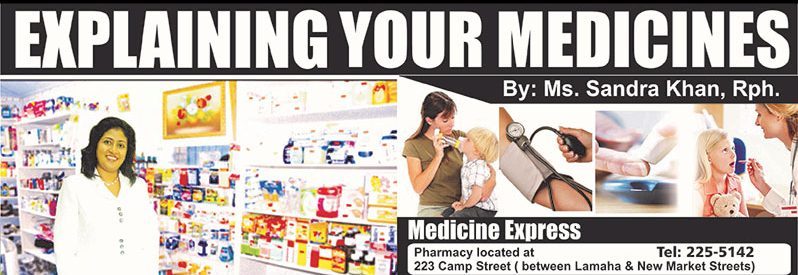AS defined by the Webster Dictionary, to rationalise means to apply the principles of scientific management to an industry or its operations for a more efficient result. The hallmark of rationalisation is efficiency by maximising the use of limited resources, more so in a looming world economic crisis, to achieve the best possible outcome.
The concept to rationalise for enhanced efficiency in patient outcomes has been aggressively pursued by many forward-thinking health institutions in developed countries even before the COVID-19 pandemic. The culture of these entities that focus on continuous quality improvement of service engage in routine assessments against their key performance indicators and strategically reorganise their vision, objective, resource allocation and prioritisation.
Medical facilities that employ best practices will accelerate innovation, optimise the functions of the work force, minimise complexities and reduce costs by relooking at redundancies and duplications.
Guyana, ranked 155 in the world with a GDP per capita of $5832 (population estimate 790,000) grew its overall GDP by 14.5 percent mainly due to oil revenues in the first half of 2021, of which 4.8 percent was attributed to non-oil activities. This is considered exceptional in the face of all the challenges encountered; an exacerbated global recession from the direct impact of the ongoing pandemic, the unprecedented floods due to climate change and the historic five-month halt due to the declaration of results from the general election in 2020.
With global inflation costs for food and fuel and an unmatched income to offset costs, money management is like chasing the wind, sometimes leaving indelible scars of impoverishment and growth impotence, widening the gap between the rich and the poor. Innovative low cost initiatives to offset expenditure must be considered.
All countries have over expended their budgetary allocations on healthcare for their citizenry and migrants mainly because of costs for vaccines, tests (PCR and antigen), PPE and other medical supplies. In some countries, like Jamaica, resources were threatened so severely by the demands of the pandemic that they were forced to shut down their hospitals temporarily. Other countries like India set up outdoor tents and mobile units, and, in some cases, treatment was administered to patients in vehicles parked outside of medical facilities. There was no preparedness for a health disaster of this magnitude for such an extended period of time.
The urgency of the crisis may not have put cost containment measures as priority initially but it must be considered at some point in time, since newer and more expensive treatments are evolving from this phenomenon.
Evidence-based treatment protocols and checklists should become the modus operandi with corresponding signatory approvals at various levels from GMO (general medical practitioner) to consultant level for all clinical operations across the board. The Pharmacy and Therapeutics Committee must endorse policies where only consultants authorise treatments for critically ill patients like third level antibiotics, anti-virals and addictive pain killers. Such policies would ensure rational use of medications by lowering resistance to many anti-microbials.
Thus more expensive tertiary level medications will be less required so ultimately contain cost by restricting demand and supply. Also standardisation of treatment protocols allows foreign-trained physicians to know what is available locally so that the patient is not sent on a wild- goose chase for a medication that is not registered and hence dispensed in Guyana.
The physician’s support is key in the entire process of rationalisation. Wastage due to duplications of tests and medications must be reduced to a minimum by rethinking operations outside of the comfort zone of one’s department.
Within an autonomous organisation, the framework for rationalisation starts with the synchronisation of a lean management mindset in a top down approach, starting from the executive board and administrative staff then trickled down to the lowest rank staff. The patient should become the focal point.
Innovate solutions such as digital health solutions enhance efficiency by creating staggered appointment times and allow for pre-registration and triage in preparation for the doctor. More importantly, it allows connectivity with all attending physicians and consultants, which is vital in timely decision making on the way forward for the patient.
Manual systems are time-consuming for both patient and staff and have many associated indirect costs such as segregation of duties, an internal audit control measure barring collusion and pilfering.
A tailored software system that is user-friendly and maintains patient confidentiality will facilitate effective communication, irrespective of location of treatment site. The current system encourages the doctor-shopping culture of our Guyanese patients because there is no unique identified verification process to establish a trend with the patient’s history, physician visits, assessment and current treatment.
The wastage from redundancies and duplication of functional systems may not enhance efficiency in operations at the technical level but may only be an accounting benefit. Annual performance appraisal and commensurate remuneration will encourage on-the-job performance and foster employee zeal for excellence or champion for change.
Policy reviews and frequent assessments against short and long-term goals by decision makers are critical for reallocation of limited resources in these times. The design and implementation of strategic plans with an eye on operational cost-effective measures gives value for money resulting in quick wins. Using the 80/20 Pareto rule, fixing 20 percent of patient needs or the high priority areas can give you 80 percent of patient satisfaction. A survey before and after will concur.
In conclusion, clinicians, manager, regulators and policy makers need to collaborate in both the public and private health care systems to truly forge a way forward to cultivate change.
For further administrative consultations, consult the founder of Medicine Express PHARMACY located at 223 Camp Street, between Lamaha and New Market Streets. If you have any queries, comments or further information on the above topic kindly forward them to medicine.express@gmail.com or send them to 223 Camp Street, N/burg. Tel #225-5142.



.jpg)








